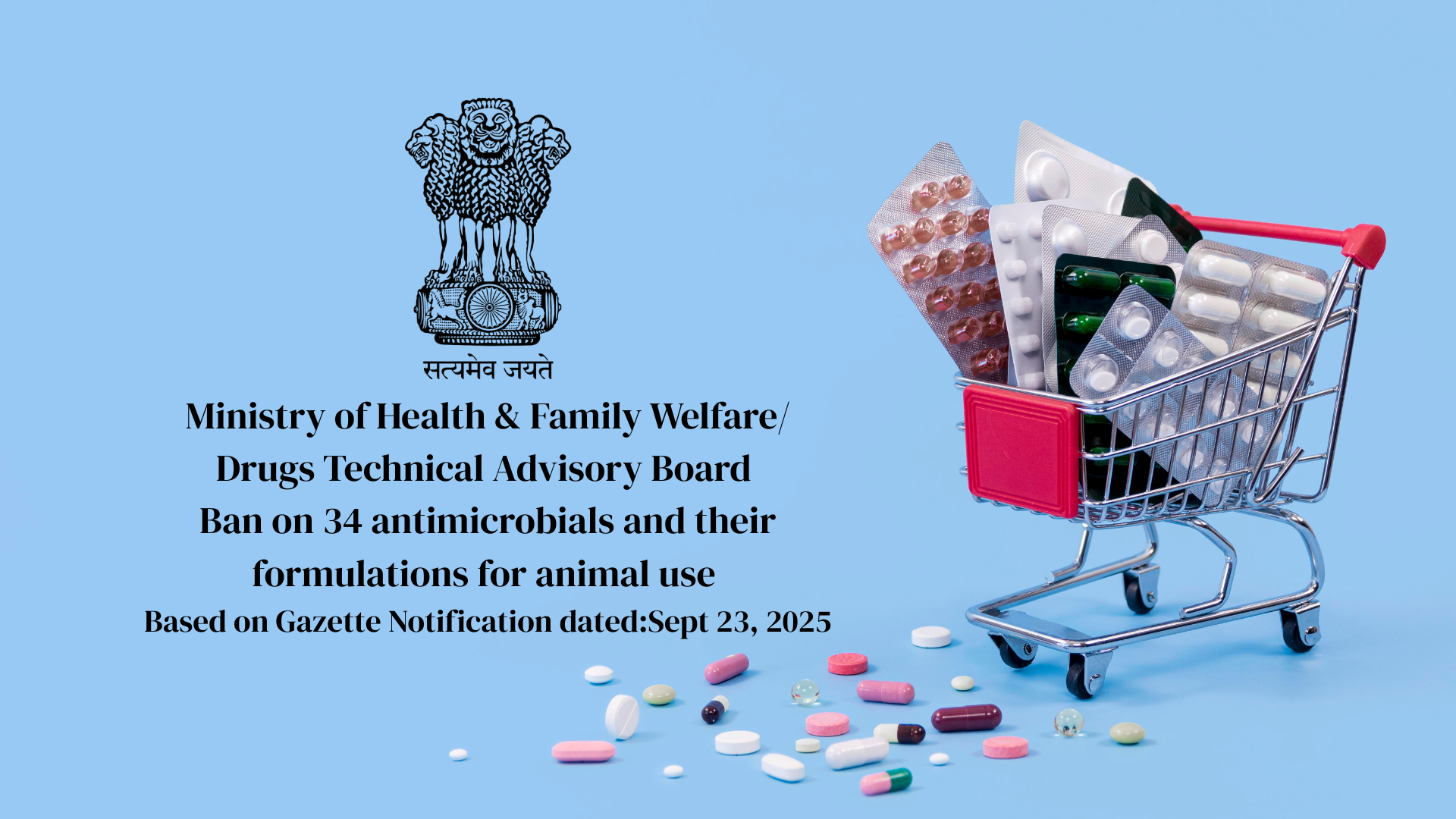
Ban on 34 antimicrobials and their formulations for animal use
Bans 34 Critical Antimicrobials for Animal Use
The Union Ministry of Health has issued a final notification banning the import, manufacture, and sale of 34 antimicrobials and their formulations for animal use, following recommendations from the Drugs Technical Advisory Board (DTAB). This prohibition aligns with similar actions taken by countries in the European Union and other regions to preserve the efficacy of these critical drugs for human medicine.
The Ministry's draft notification, released on May 22, had sought public comments for a 30-day period. The final notification, dated September 23, confirmed that no objections or suggestions were received, and the rules have now been officially enforced.
The Banned List: Critical Antibiotics and Key Antivirals Included
The banned drugs include a range of antibiotics and antivirals, with some of the most notable being ureidopenicillins, ceftobiprole, ceftaroline, glycopeptides, and oxazolidinones, among others. The list also includes 18 antiviral drugs, such as amantadine, favipiravir, molnupiravir, and oseltamivir, as well as the antiprotozoal nitazoxanide.
The Ministry justified the ban by stating that the use of these antimicrobials in animals poses a risk to human health, as some of these drugs are reserved for the treatment of certain human infections. In addition, the Ministry highlighted that safer alternatives are readily available for animal treatment.
Recommendation from the DTAB
The decision follows a recommendation from the DTAB, which based its proposal on the European Union's regulation 2022/1255. The European Commission had previously reserved 37 antimicrobials for human use to prevent antimicrobial resistance, a growing global health threat. While India has opted to ban 34 of these drugs, the DTAB has requested additional reports on three specific antimicrobials before making a final decision regarding their use in animals.
“Certain antimicrobial products should be reserved for the treatment of human infections in order to preserve their efficacy and support the global fight against antimicrobial resistance,”said the EU regulation. India's ban follows this principle, aiming to prevent the overuse of critical drugs in animals, which can contribute to the development of resistance in humans.
This is not the first time the Ministry has taken a strong stance on drug safety in animal medicine. In December 2024, the Health Ministry also banned the sale and use of the non-steroidal anti-inflammatory drug (NSAID) nimesulide for animals, citing similar risks to animal and public health.
The latest move is part of a broader global effort to combat antimicrobial resistance, which has become a major public health concern. The World Health Organization (WHO) has warned that without urgent action, antimicrobial resistance could lead to a future where common infections become deadly once again.
Click here to know more and access the official guidance document
Note:
Cases related to Pharmaceuticals are highly technical and knowledge-driven. If you're searching for a drugs and cosmetics lawyer in India, a pharmaceutical lawyer, Mace Corporate Associates is the perfect place. If you are searching for a DPCO Lawyer for overcharging cases or DPCO Compliance, Mace can assist you well.
May it be a clinical trial Lawyer or a Medical device lawyer, Mace can be of great and perfect match for Pharmaceutical litigation. Mace has an accomplished track record for Not of Standard Quality Cases, Licensing Cases etc.
